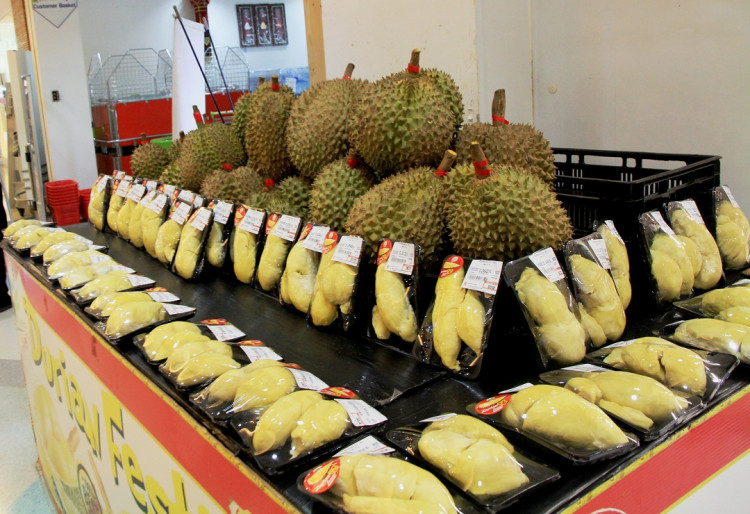People from around the world always have had an innate curiosity to try out exotic foods. This is particularly true in China, where there is a demand for exotic seafood, fruits, and other delicacies. Most of these types of foods can be sourced locally around China, but there is one fruit that has piqued the taste buds of the Chinese in recent years. The Durian, an extremely pungent edible fruit found mainly in Southeast Asian countries, has recently been seeing an exceptional rise in demand in China.
The fruit, which sometimes called the "King of Fruits," is well known for its sticky and sweet flesh that produces an overpowering aroma with an unpleasant odor. The odor has been described by some as being akin to raw sewage or rotten onions. Some people, on the other hand, find the smell pleasant and sweet. Due to the fruit's odor, which may linger for several days, it is currently banned in certain hotels and public establishments. However, the fruit's smell apparently hasn't deterred Chinese food lovers who consume tons of the stuff each day. Despite its smell, the fruit's flesh is flavorful with a creamy texture. Its seeds can also be used for cooking and its flesh is a staple in a number of Southeast Asian delicacies.
The price of durian throughout China has spiked since it became popular in the country. The prices of the popular fruit rose from just US$9 per kilo in 2013 to US$22 per kilo today. Its rise in popularity has also caused an export boom, with a majority of the crops being brought in from Thailand and Malaysia. Thailand currently ships a total of US$495 million worth of durian each year, while Malaysia ships around US$18 worth. Malaysia has reportedly closed a deal with China to export more fruits in the coming years. The new deal will likely lead to a large increase in the production of durian in Malaysia, most of which will be exported to China.
Durian farmers are also reaping in the profits, as durian has proven itself to be a more profitable crop compared to palm oil and other plant products. Durian plantations earn close to US$40,000 per hectare, which makes it quite an irresistible business venture for large corporations and governments. There are currently close to 200 known varieties of durian, but the most popular one still remains to a variety called the "Musang King." This durian variety is largely grown in the rural state of Kelantan, particularly in its isolated Gua Musang district. The soil in the area is potassium rich and is perfect for growing the crop.






